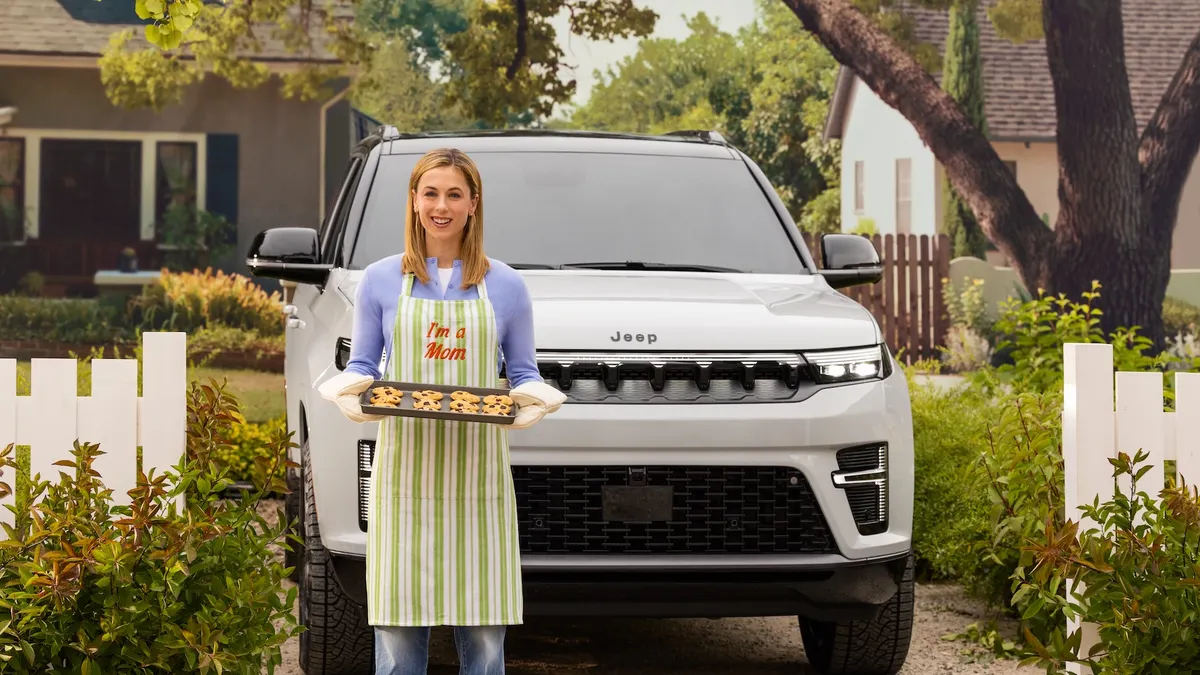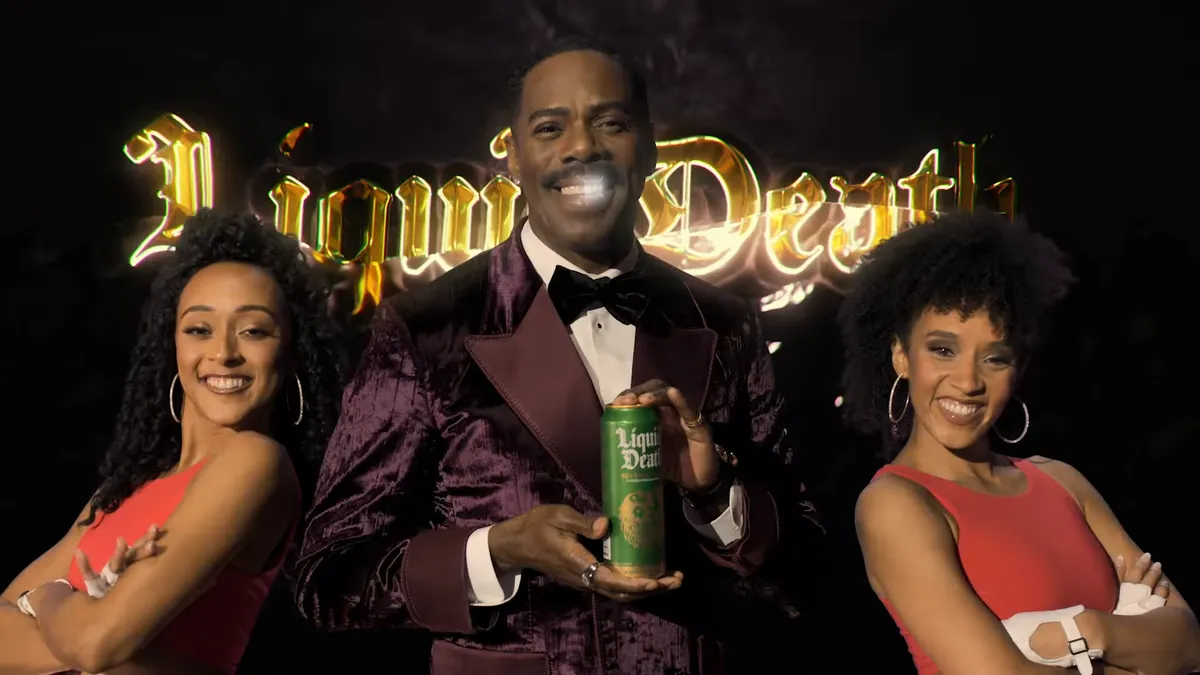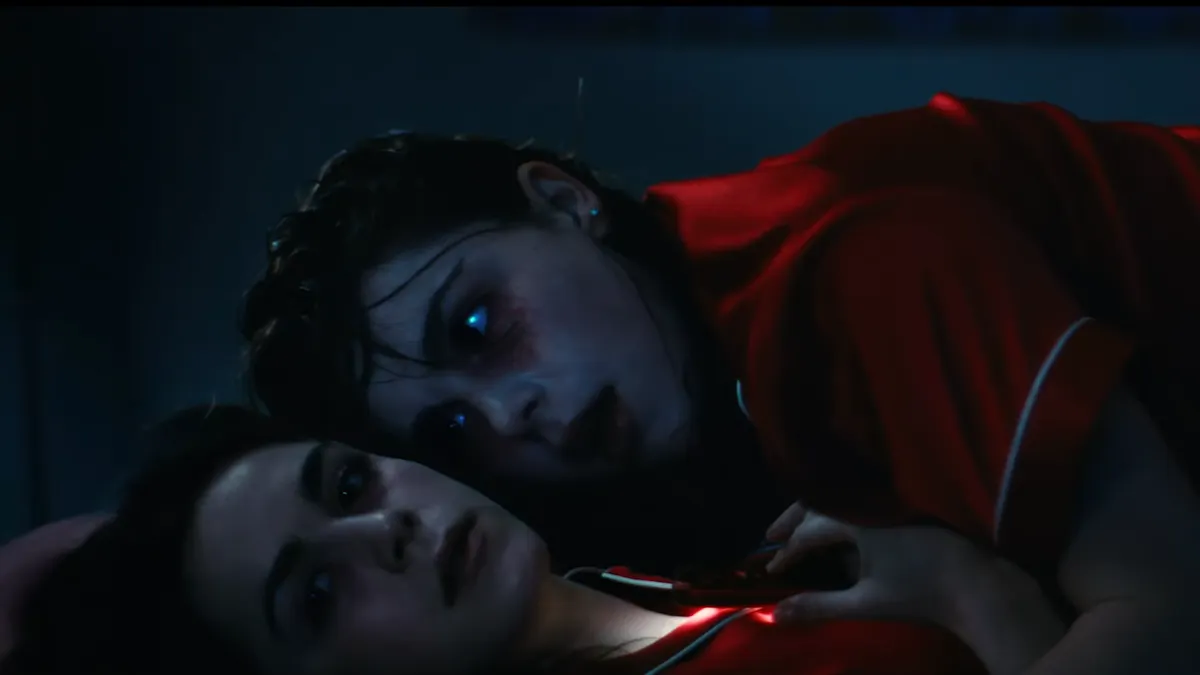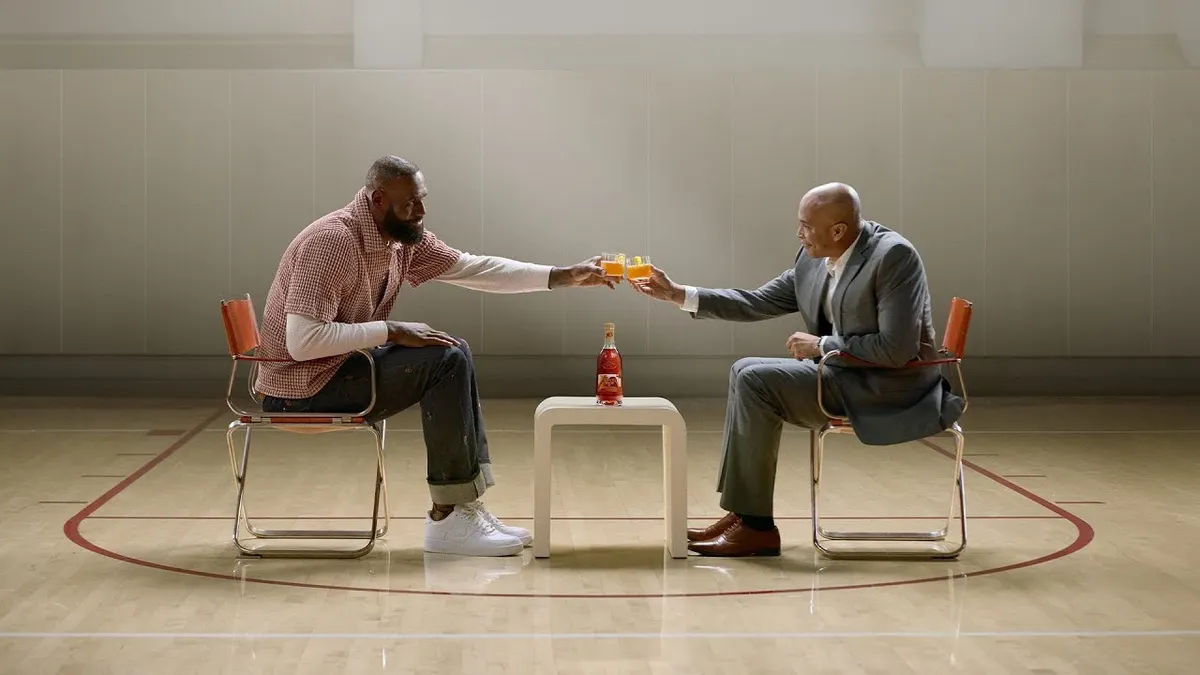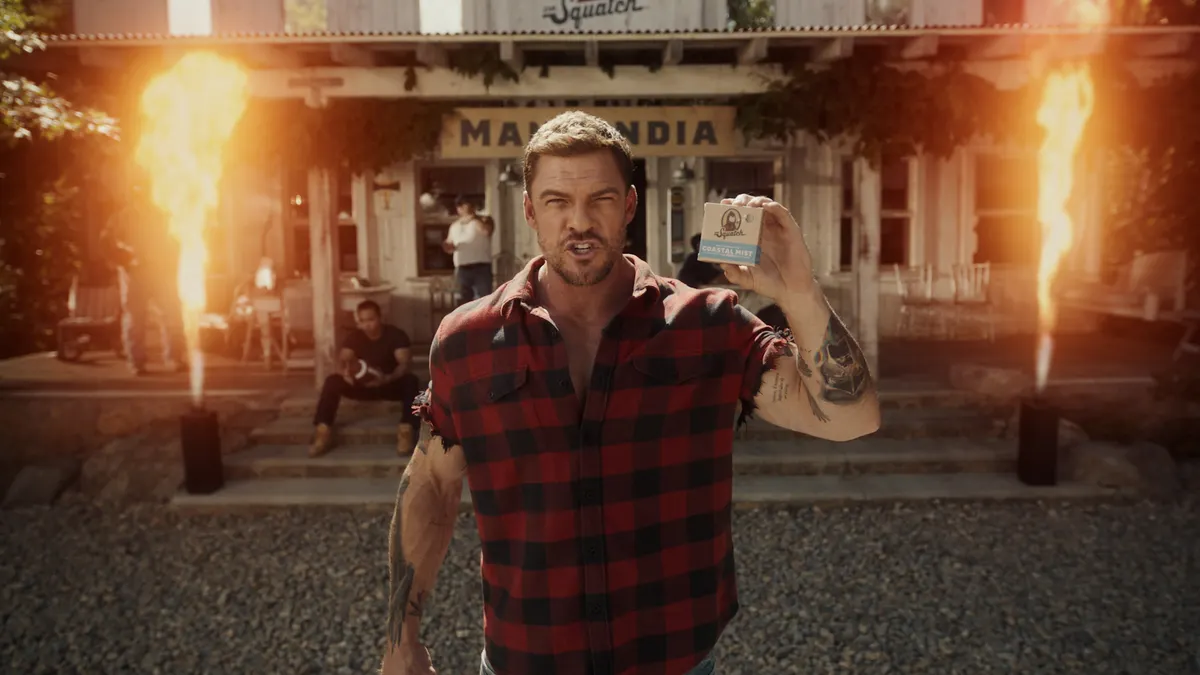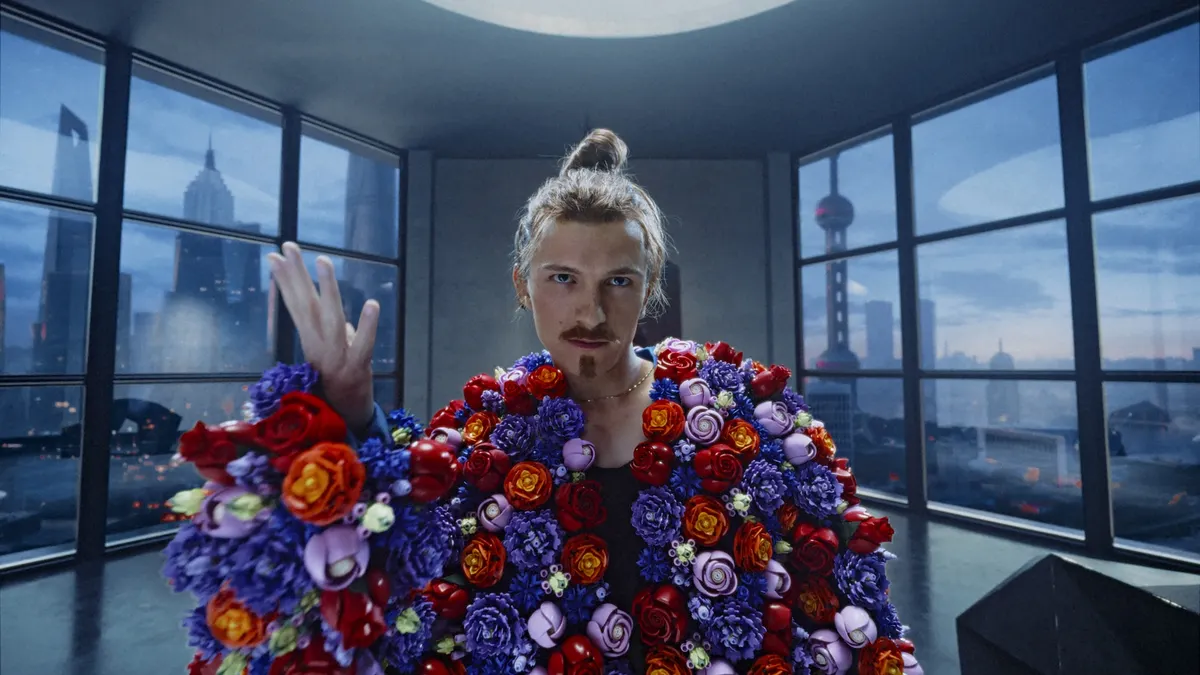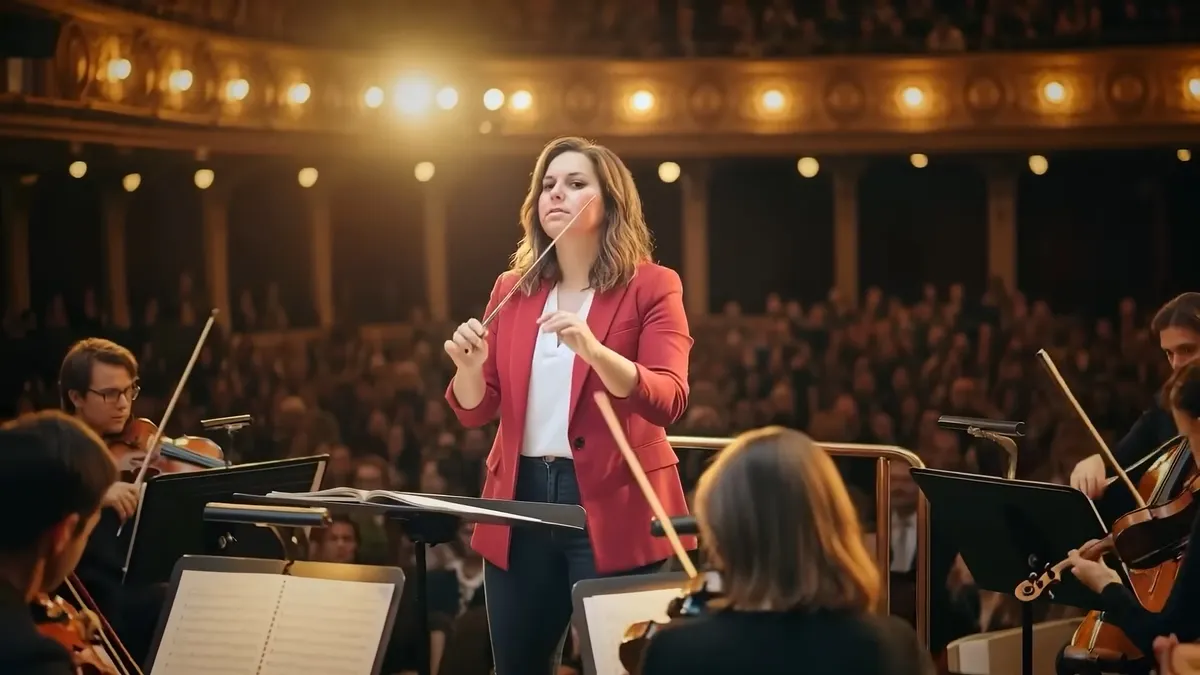Campaign Trail is our analysis of some of the best and worst new creative efforts from the marketing world. View past columns in the archives here.
The opening seconds of Reebok's latest ad begin as a cliché sports scene before the vibe quickly pivots. Just as a basketball player readies a shot, a young girl appears on the blacktop court and interrupts the game with a strange dance that mesmerizes the players and onlookers, who soon join in. The result is spooky and just puzzling enough to make viewers wonder if they're watching a modern horror film.
The artsy, 90-second clip showcases the Reebok Aztrek Double, a new iteration of a shoe that first debuted in 1993. A notable departure from the brand's previous creative strategy, which emphasized more traditional sports marketing messaging, the video is the first of three expected installments in the "Sport the Unexpected" campaign that targets millennials and Gen Z with a mix of '90s nostalgia and buzzworthy creative.
Reebok isn't alone among legacy apparel brands looking to reinvigorate their image for a younger, tech-savvy generation. Often, these efforts center on digital integrations like virtual try-ons, exclusive "product unlocks" for rewards members and mobile-powered store experiences. Instead, Reebok is taking a different route and updating its creative while also debuting its first loyalty program. The thematic pivot from its 2015 campaign "Be More Human," which celebrated female athletes, appears to show a fresh side to Reebok's strategy as it dips its toes into more creative brand storytelling.
Digital video and short films are ballooning in popularity as marketers look for unique ways to reach ad-fatigued consumers. But while the strategy allows for greater flexibility and imagination, brands run the risk of sacrificing effective branding for the sake of creativity.
According to Joe Anthony, CEO of agency Hero Group, Reebok's ad was eye-catching and compelling, but its execution could have been more poignant.
"There really was this 'Twilight Zone' vibe to it, and I was trying to figure out where Reebok was going with it, but it never ended in a place that reconciled it for me," he told Marketing Dive. "It felt like too much of an art piece where the message was buried in the artistic interpretation of how [Reebok] executed the film.
"Maybe they wanted to make something a little more ambiguous and provocative and avant-garde and not be so overt with the message, but coming from a brand standpoint, [Reebok] hasn't established enough equity to be able to put things out like this that allow the consumer to fill in the blanks."
Reebok and its agency of record Venables Bell & Partners declined to comment for this story.
Stark departure
The clip's unconventional protagonist, a young girl in a white dress, is perhaps a metaphor for the revitalization image Reebok wants to emit, appearing somewhat out of nowhere to surprise audiences and shake up the "same old, same old" branding with old-school shoe models and quirky creative.
"When Reebok originally built the brand, they did it by being a challenger. For them to now produce creative that's intentionally jarring or against the norm, that brings us back to that same '80s-'90s era mindset," Greg Portell, lead partner in the global consumer and retail practice of strategy and management consulting firm A.T. Kearney, told Marketing Dive. "But if you look at [the commercial] with a critical eye, you might think, 'will that positioning and the way they decided to be disruptive now resonate with their audience of millennials and Gen Z?'"
Reebok will release two other videos in the campaign throughout 2019, the company announced in March. One challenge surrounding that longer-term strategy is stretching the story arc and keeping brand buzz alive as the remaining installments arrive over the next several months, especially considering the binge-watching preferences of today's consumers, per Portell.
"Reebok is really going against some of the commonly held marketing beliefs today. If we think of this as a three-part narrative that will play out over a year, very few creative concepts can bridge that amount of time with such a delay between releases," Portell said.
The next installment is "Back Where We Started," which goes back in time to spotlight Reebok's classic Club C shoe. The storyline for the third video is still under wraps, per Reebok.
Millennial nostalgia
According to Hero Group's Anthony, the key theme in "Storm the Court" is individuality, which could resonate with Reebok's target age groups, as they're known for seeking out marketing messages that align with their values and communicate a brand's authentic story.
"What that spot really communicates to me was the power of individuality and your ability to bring your best self to the world," he said. "That was the viral effect of that commercial. She did a dance that had a viral effect on everybody, meaning that if you're bold and brave enough to disrupt the status quo and bring your authentic self every day, you'll have an infectious impact on everyone around you."
From sports retailer to lifestyle brand
Acquired by Adidas in 2005, Reebok has since focused mainly on fitness enthusiasts and athletes with sports-focused products and traditional creative. The latest campaign, however, appears to be shooting for a broader consumer base who might view sneakers and athletic apparel as more of everyday wear that's no longer reserved for the gym or field.
"Sports culture is evolving into a kind of lifestyle culture, and even though Reebok's is rooted in sports, brands like Nike, Adidas and Reebok have to work harder now to pay homage to the evolving category and all of its influences, especially as the dad-style sneaker grows more popular among fashion brands like Gucci, Balenciaga and Burberry," Anthony said.
"They'll have to do a lot more homework to determine how they fit in to someone's life and how they can add value to a consumer that's already extremely comfortable with who they are."

Joe Anthony
CEO, Hero Group
Streetwear, sneaker culture and athleisure are popular trends with Gen Z and millennials, and Reebok appears to be working to carve out a larger share of those highly competitive markets.
"Reebok understands the power of lifestyle and that sneakers are being worn as badges of creativity and artistic expression — they're becoming the new kind of luxury shoe," Anthony said. "Sports doesn't have the equity it once did to do all the heavy lifting for these athletic apparel brands, so they have to find a way to tap into a different motivator for consumers."
Lessons for legacy brands
Historically, legacy brands often relied on "borrowed equity" from celebrities for much of a campaign, according to Anthony. But as consumers grow increasingly fatigued by overt marketing with celebrity endorsements, brands must now realign their messaging with the values of their target customers.
It's no longer enough for brands to simply associate with what key consumers care about, they must become it by truly understanding what they value, Anthony added. That's a challenge for legacy brands stuck in the traditional model of talking at consumers and wielding a higher level of control.
"Influence is becoming highly democratized, and [brands] can't dictate what's important to consumers anymore. They have to follow their lead," he said. "They'll have to do a lot more homework to determine how they fit in to someone's life and how they can add value to a consumer that's already extremely comfortable with who they are."







